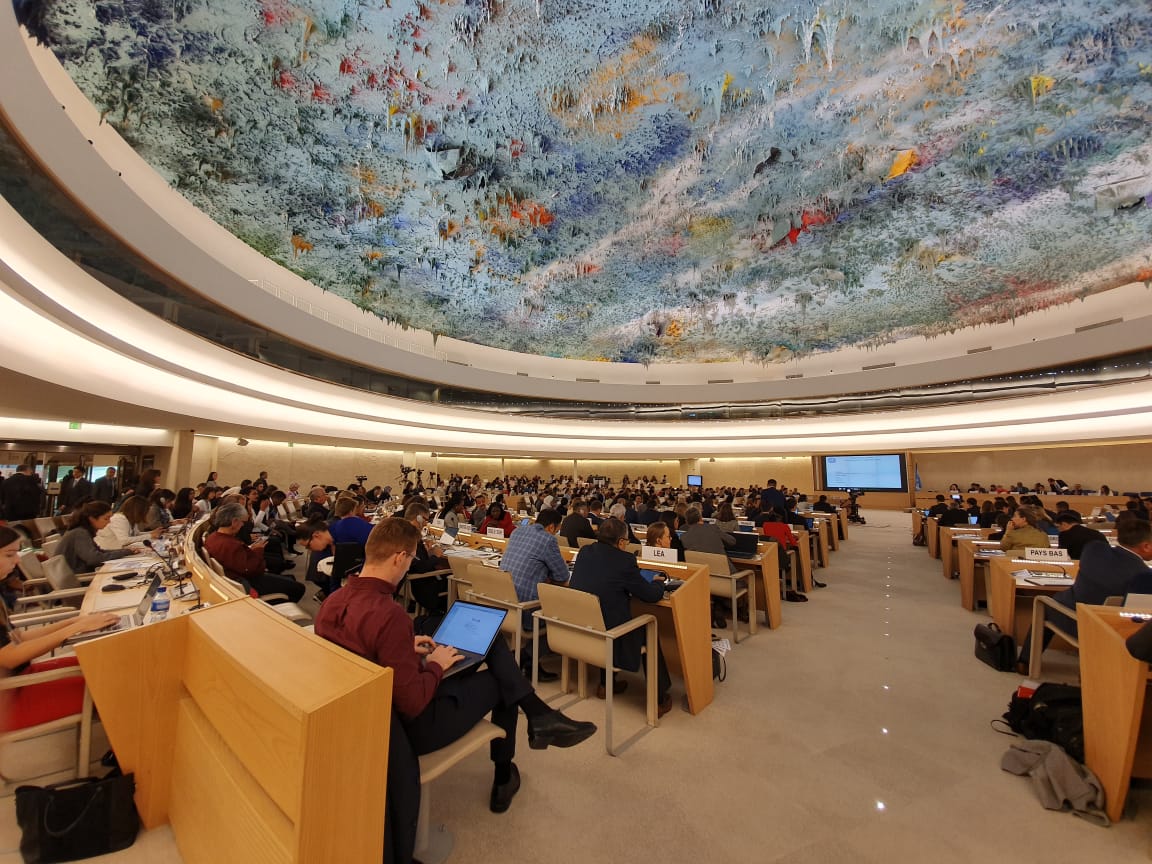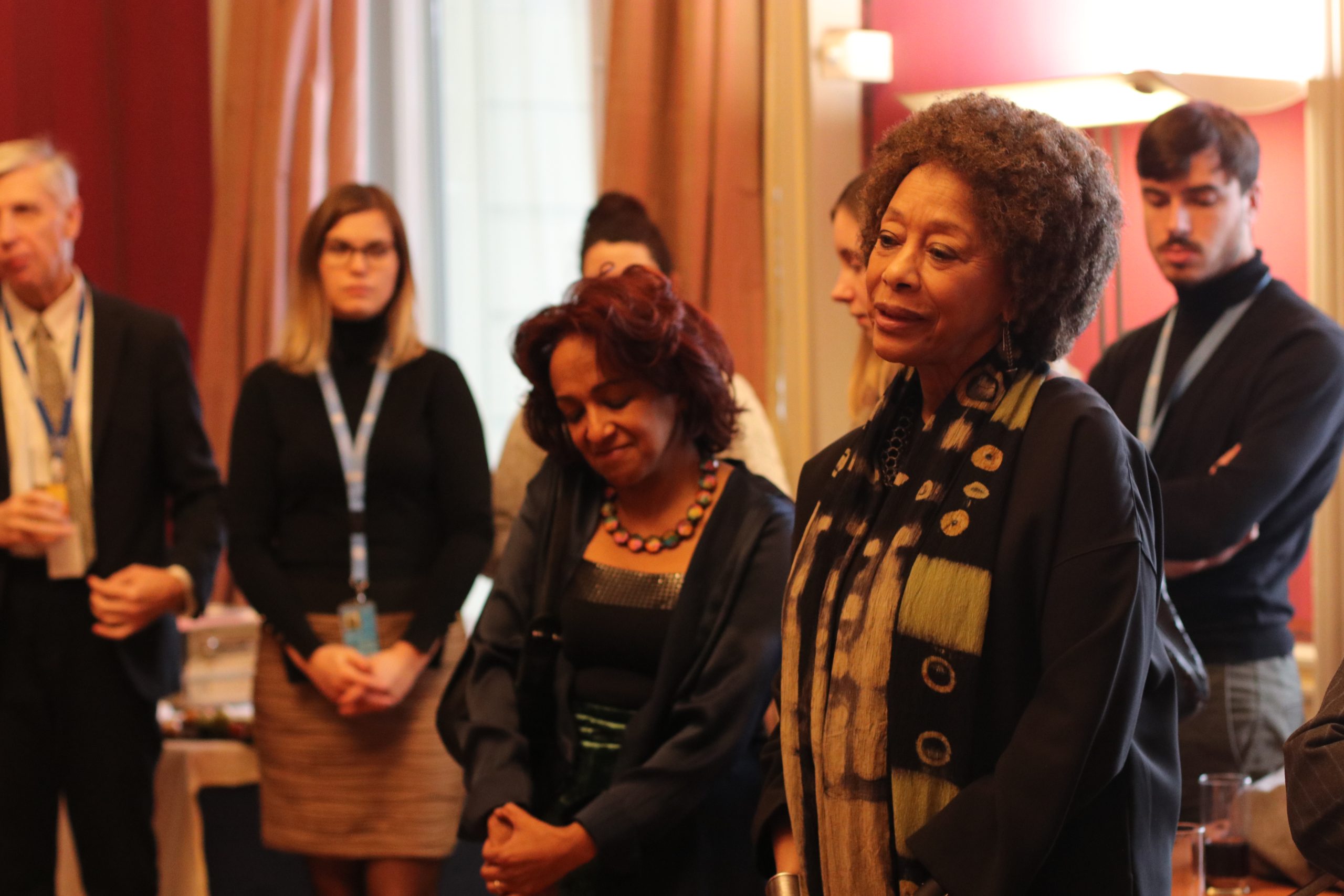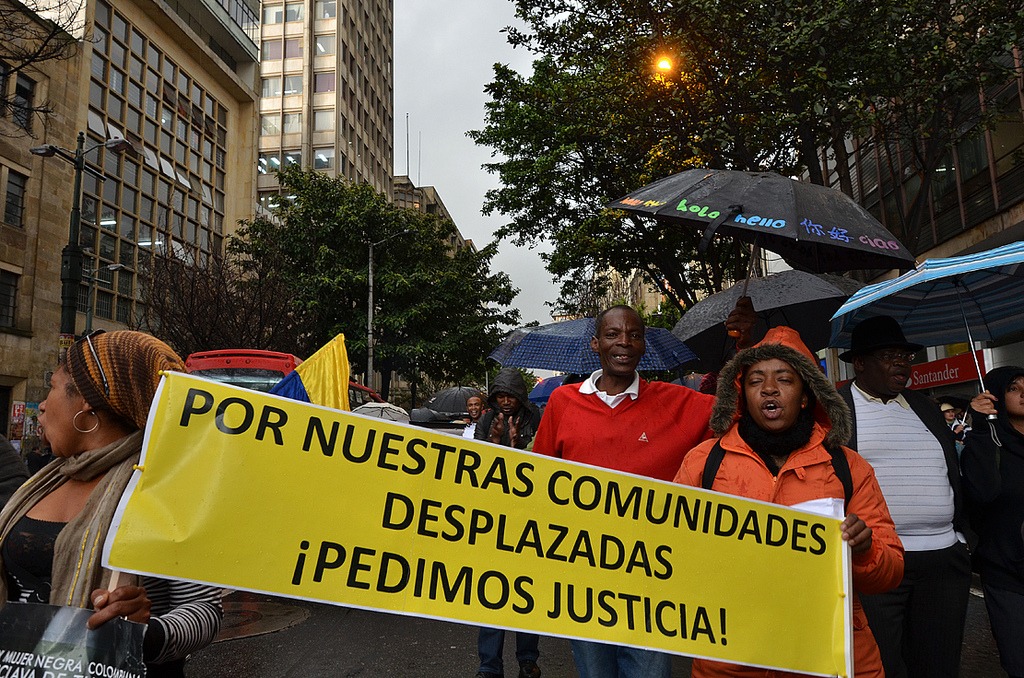Human rights crisis in Nicaragua has not been resolved, according to High Commissioner for Human Rights, IACHR and activists
Geneva, September 10, 2019. The serious socio-political and human rights crisis that Nicaragua has suffered since April 2018 was exposed in all its magnitude this week during the 42nd session […]

Geneva, September 10, 2019. The serious socio-political and human rights crisis that Nicaragua has suffered since April 2018 was exposed in all its magnitude this week during the 42nd session of the UN Human Rights Council in Geneva, Switzerland. On Tuesday, High Commissioner for Human Rights Michelle Bachelet presented an updated report on the situation in the country and various diplomatic delegations expressed their support to the people of the Nicaragua. A delegation of activists, journalists, former political prisoners, defenders of Nicaraguan human rights and international human rights organizations also attended the session.
The Bachelet Report
The UN High Commissioner for Human Rights, Michelle Bachelet, communicated in her report that serious human rights violations have continued in Nicaragua, especially violations of the rights to peaceful assembly, to freedom of expression and association, to personal freedom, to not be subjected to torture or inhuman conditions of detention, to a fair trial and to obtain reparations.
“The institutional response to human rights violations has been insufficient,” Bachelet said in her speech, adding that the justice system in Nicaragua has not guaranteed accountability for these serious violations. Consequently, she stressed the importance of human rights organizations being able to return to the country to monitor the human rights situation.
#Nicaragua: Despite some improvement since the resumption of political dialogue in February, serious #HumanRights concerns persist. UN Human Rights Chief @mbachelet updates #HRC42 on the situation in the country.
— UN Human Rights (@UNHumanRights) September 10, 2019
Learn more: https://t.co/Bb2x6f7ffd pic.twitter.com/kIW1INc5sE
The report gives eight recommendations to the State of Nicaragua, including: to “urgently” resume the dialogue between the government and the Civic Alliance for Justice and Democracy; to guarantee the freedoms of peaceful assembly, expression and association; to restore the legal status of the nine civil society organizations and the media that were sanctioned and outlawed; and to establish a broad plan of action oriented towards accountability.
IACHR and international delegations endorse the report
The Rapporteur for Nicaragua of the Inter-American Commission on Human Rights (IACHR), Antonia Urrejola, said that the crisis in Nicaragua “keeps the country in a climate of serious institutional deterioration and complete closure of democratic spaces for the exercise of human rights.”
According to the Commissioner, “the de facto installation of a state of exception persists and this keeps public liberties suspended or seriously limited; arbitrary detentions also persist, as do the exile of journalists and social leaders, a lack of effective judicial protection for victims, impunity, reports of murders of people identified as government opponents, reports of cases that could be described as forced disappearances and the reports of sexual attacks and torture.”
Various diplomatic delegations also supported the OHCHR report, including: Argentina, Australia, Belgium, Brazil, Canada, Costa Rica, Chile, Colombia, Czech Republic, Ecuador, the European Union, France, Georgia, Germany, Iceland, Luxembourg, Mexico, Paraguay, Peru, Spain, Switzerland, South Africa and Uruguay. Likewise, the organizations CIVICUS, Red Local, Human Rights Watch, FIDH, Amnesty International, CitizenGo and Hivos all welcomed the report and urged the State to accept its recommendations.


Nicaraguan state denies human rights violations
The Vice Chancellor of Nicaragua, Valdrack Jaentscke, denied the human rights violations committed by the State of Nicaragua from the beginning of the crisis in April 2018 to the present, despite the evidence presented by Bachelet and Urrejola.
Instead, he discredited the report and defended the government position that in Nicaragua there is full freedom of association, no journalist has been persecuted for exercising his or her work, no human defenders have been repressed, no arbitrary detentions have taken place and that there is no torture or cruel and inhuman treatment in prisons.
The State of Nicaragua was supported by the delegations of Belarus, Bolivia, Cuba, Russia, Syria and Venezuela, countries that requested the UN not to intervene in internal affairs.
Advocacy
One day before the presentation of the human rights report on Nicaragua, the event “Fighting impunity and strengthening accountability: violations of human rights in Nicaragua” was held in Geneva, organized by the Institute on Race, Equality and Human Rights (Race and Equality) with the purpose of bringing the Nicaragua’s reality closer to the Human Rights Council’s proceedings.
The panel was made up of Nicaraguan ex-political prisoners Lucia Pineda, Victoria Obando and Edwin Carcache, the UN Special Rapporteur on Rights to Freedom of Peaceful Assembly and of Association, Clément Voulé and the first vice president of the Inter-American Commission on Human Rights and Rapporteur on the Rights of Persons Deprived of Liberty, Joel Hernández.

Lucía Pineda, News Director of 100% Noticias, explained how the Nicaraguan government continues to harass, threaten and repress independent communicators and journalists in her country, and how the offices of the 100% Noticias and the digital outlet Confidencial as well as the television programs Esta Noche and Esta Semana, directed by Carlos Fernando Chamorro, are still occupied by state forces.
Edwin Carcache, student leader and member of the Civic Alliance, said that at least 126 people who were arrested for their participation in citizen protests are still being held, and regretted that these political prisoners are experiencing the same conditions of torture and inhuman treatment that he suffered in the cells of the Jorge Navarro Penitentiary System, also known as “La Modelo.”
Victoria Obando, on the other hand, highlighted how the LGBTQ community has been an active part of citizen demonstrations and therefore has suffered the onslaught of repression through imprisonment or exile. “We have records of people from our community who are exiled in at least 13 countries, where their living conditions are severely affected in ways that intersect with the visibility of their sexual orientation or gender identity,” Obando explained.
#Nicaragua : The government needs to recognize the value of civil society as an actor to restore peace and build social cohesion, through the full enjoyment of FoAA @ICNLAlliance @CIVICUSalliance @conectas pic.twitter.com/csD6w3tpFH
— UN Special Rapporteur Freedom of Association (@cvoule) September 11, 2019
Doctors, journalists and students are among the thousands who’ve fled Nicaragua so far. Today, the UK called on the Nicaraguan government to end repression of its citizens, and fully cooperate with international organisations. Full #HRC42 statement here: https://t.co/oAoRh2Osn0 pic.twitter.com/iVekalztBl
— UK Mission Geneva (@UKMissionGeneva) September 10, 2019
Support of the Universal System and Inter-American System
The UN Special Rapporteur on Rights to Freedom of Peaceful Assembly and of Association, Clément Voulé, agreed with Bachelet’s report and reiterated that the human rights of Nicaraguan citizens continue to be violated.
Voulé stated that the rights to freedom of peaceful assembly and to freedom of association are fundamental and necessary to guarantee other rights. He therefore asked the State of Nicaragua to return legal status to NGOs that were outlawed, since they play a vital role in the protection and fulfillment of human rights and the democratic life of society.
“The Nicaraguan government should not see them as a threat, but as a means of dialogue in which they should participate,” he added, highlighting that the beginning of any transitional justice process involves allowing independent organizations to support the victims and document facts. In addition, he stressed the great interest of his office in visiting the country to establish a dialogue with the Nicaraguan government, although he has not received a response from the State.
Finally, IACHR vice-president Joel Hernández also stressed that the Commission is willing to deploy their missions again in Nicaragua, although they have not received a response to their repeated requests. “The democratic spaces have been closed and to date they have not been opened. Nicaragua does not have a will to solve this crisis,” Hernández said.

